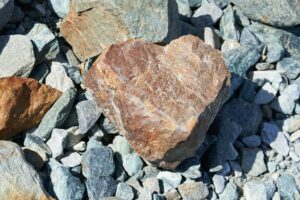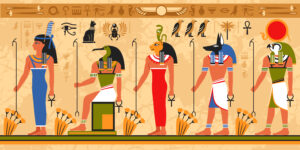A few years ago we had a sandstorm during the ‘Ten Days of Awe’ between the Feast of Trumpets (Rosh HaShanah) and the Day of Atonement, the holiest day of the Jewish calendar, and here are some reflections on sand in relation to our own lives.
Sand and dust represent worldliness / secularism
In the Ten Days of Awe, Jewish people traditionally have a time of introspection and self examination, asking for forgiveness from God and from other people for wrongs they have done. It’s a time to focus on God and get rid of the “sin that so easily entangles”, as Paul put it well. We see God separating that which is holy apart, and setting it aside for himself in many places in Scripture. But conversely, the Hebrew word for sand, חול (chol), is the same as the word for “secular” or “ordinary” – that which is not set aside or holy.
Sometimes Israel experiences severe sandstorms, which can even result in fatalities as breathing becomes more of a challenge. A dense, yellow fog of sand particles can hang in the air for days, creating a surreal and unpleasant environment until the air clears and the skies become blue again. The dense dusty sand that can hang over Israel during a sandstorm was a good reminder of how sin and worldliness works:
It clouds our vision and brings short-sightedness
It chokes and suffocates life
It makes it difficult to move up and out
During one particularly bad sandstorm, hundreds of people were hospitalized with breathing difficulties, and the radio warned us all not to venture outside unless it was necessary. What was usually clearly visible became shrouded in a suffocating cloud of dust, and one of Israel’s airports temporarily closed due to restricted visibility. We weren’t going anywhere. In the same way, worldliness keeps us grounded, and fogs up our vision.
Funnily enough, Tel Aviv, Israel’s most hedonistic city, is built on sand! It is known as a party city, and one of the gay capitals of the world. It is secular and “chol” right down to its very foundations.
“Shake yourself from the dust and arise!”
“Awake, awake, put on your strength, O Zion; put on your beautiful garments, O Jerusalem, the holy city… Shake yourself from the dust and arise; be seated, O Jerusalem; loose the bonds from your neck, O captive daughter of Zion.” (Isaiah 52:1-2)
When we allow the “dust to settle” we are no longer moving; we have become content with a situation which is less than God’s best. It’s so easy to get stuck in a rut and end up stationary in what should be a dynamic walk with God – a race even! We should always be moving onward and upwards in him. It may be easier to become stagnant in one comfortable zone, but God is always beckoning us to move on – pressing on further and deeper in our walk with him. This requires courage and faith, but the alternative is remaining in captivity. We have been set free, and like ancient Israel when they were liberated from Egypt, God is always calling us to move on in our adventure with him, and leave the past of slavery behind us. This starts in the mind, and flows out to the rest of our lives.
At Rosh haShanah, the Feast of Trumpets – the shofars were blown to signify a breaking of camp. It is time to shake off the dust and move forward. We do not want to let the dust settle, but like Yeshua told his disciples when encountering opposition, “shake the dust off your feet” and move on. Pack up the things that are of the world and put them away. We are called to be God’s people – a holy nation, a kingdom of priests, belonging to God and “set aside” for him. The opposite of “chol”.
“Depart, depart, go out from there; touch no unclean thing;
go out from the midst of her; purify yourselves, you who bear the vessels of the Lord.
…the Lord will go before you, and the God of Israel will be your rear guard.” (Isaiah 52:11-12)
Today we are holy vessels of the Lord
The opposite of חול (chol) is קדוש (kadosh) – holy, or set apart for God. Our bodies are his temple, and our lives should display the glory of God. We are not for ordinary, worldly use. We are called to be channels of God’s blessing and truth to those around us as. Israel has also been called as a channel of God’s blessing to the nations – bringing us the Scriptures, the oracles of God, the very story of the people of Israel is a preview of God’s faithfulness in action, and of course, bringing us the Messiah himself. Now it is the turn of the nations to be vessels of God’s mercy in return, bringing the good news of Yeshua the Messiah and his redemption!
Also from Isaiah 52, we see this description of the carriers of the Good News:
How beautiful upon the mountains are the feet of him who brings good news, who publishes peace, who brings good news of happiness, who publishes salvation, who says to Zion, “Your God reigns.” (verse 7)
Your God reigns. It’s almost as if it was planned by God that the nations would come back to his people and tell them, YOUR God reigns! Let’s keep praying that the sandy fog of secularism in Israel would disperse, so that more and more Jewish people would see clearly who Yeshua really is.
















